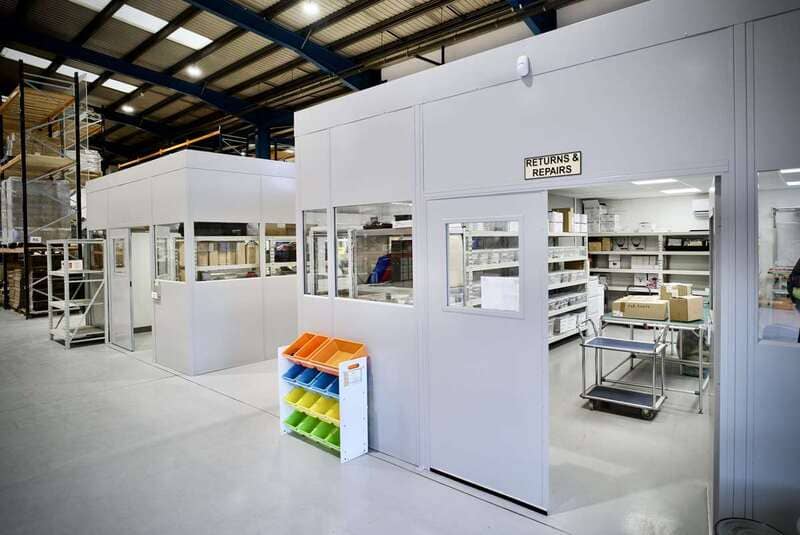
In today’s dynamic industrial landscape, the ability to adapt and evolve is paramount for businesses striving for efficiency and growth. Fixed structures and rigid layouts can quickly become bottlenecks, hindering productivity and limiting potential. This is where the innovative concept of flexible partitioning comes into its own, offering a transformative solution for optimising your workspace.
For many UK businesses, particularly those in manufacturing, warehousing, and logistics, the need for adaptable spaces is a constant. Whether it’s creating temporary cleanrooms, isolating noisy machinery, defining distinct work zones, or simply reconfiguring a layout for a new project, traditional building methods often prove too time-consuming, costly, and disruptive.
What is Flexible Partitioning?
At its heart, flexible partitioning involves using modular, reconfigurable systems to create temporary or semi-permanent divisions within a larger industrial space. Unlike brick-and-mortar walls, these systems are designed for ease of installation, relocation, and even dismantling, providing an agility that traditional construction simply cannot match.
Common examples include PVC strip curtains, modular panel systems, and retractable fabric walls. Each offers distinct advantages depending on the specific application, from basic dust and draught control to more robust acoustic and thermal insulation.
The Benefits for British Businesses
The adoption of flexible partitioning brings a wealth of advantages, directly impacting a company’s bottom line and operational efficiency:
- Cost-Effectiveness: Compared to permanent construction, flexible solutions are significantly cheaper to install and modify. The reduced labour and material costs, coupled with the ability to reuse components, offer substantial savings.
- Enhanced Flexibility and Adaptability: This is arguably the biggest selling point. Businesses can quickly reconfigure their space to accommodate new production lines, seasonal demands, or changes in workflow without major structural upheaval. This agility is crucial in today’s fast-paced market.
- Improved Safety and Organisation: Flexible partitions can be used to create designated walkways, segregate hazardous areas, or provide enclosed spaces for specific tasks, thereby enhancing workplace safety and improving overall organisation.
- Optimised Environmental Control: From containing dust and fumes to maintaining specific temperature zones for sensitive equipment or products, these systems offer effective environmental control, leading to better product quality and a more comfortable working environment.
- Reduced Disruption: Installation is typically quick and clean, minimising downtime and disruption to ongoing operations – a critical factor for any busy industrial setting.
- Energy Efficiency: By creating smaller, more manageable zones, businesses can more efficiently heat, cool, or ventilate specific areas, leading to potential energy savings.
Tailored Solutions for Every Need
No two industrial spaces are exactly alike, and the beauty of flexible partitioning lies in its versatility. Suppliers like DBC Industrial offer a range of solutions designed to meet diverse requirements, from heavy-duty industrial curtains to sophisticated cleanroom environments. Their expertise ensures that businesses can find the perfect fit for their specific operational needs.
In an era where efficiency and adaptability are key drivers of success, investing in flexible partitioning is a smart move for any forward-thinking British business looking to optimise its industrial workspace. It’s an investment that pays dividends in terms of flexibility, cost-savings, and operational excellence.